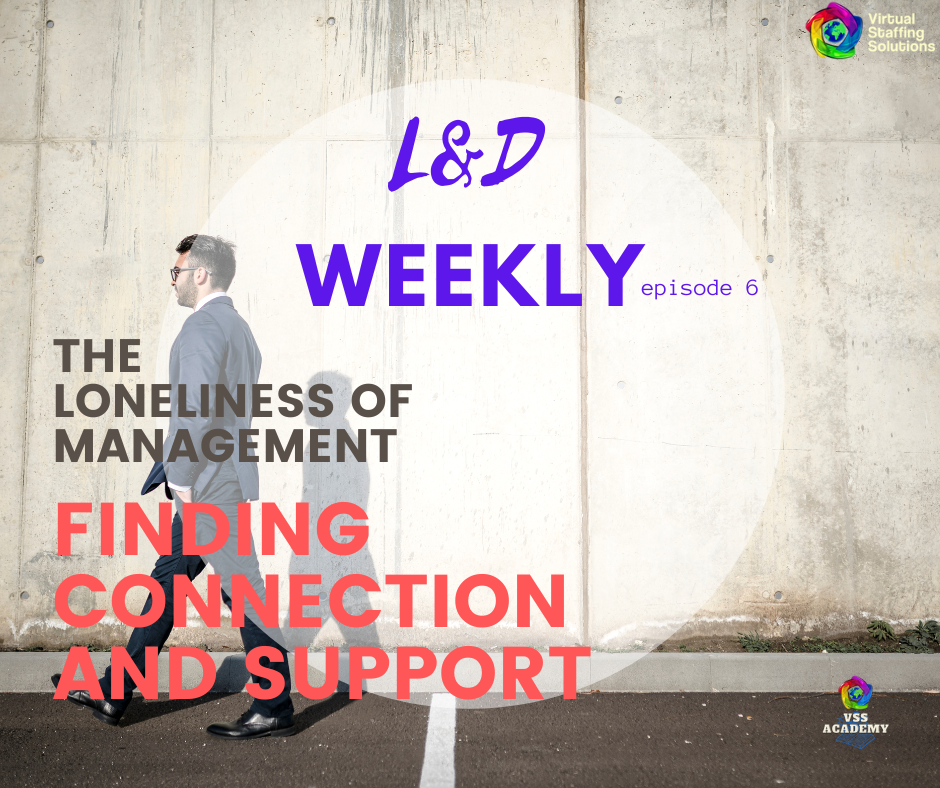Being a manager often means occupying an organization’s unique and sometimes lonely position. It’s frequently said that “the view from the top is a lonely one,” this sentiment can be particularly resonant for those in management roles. As a manager, your responsibilities include keeping your team engaged, productive, and satisfied while serving as a role model for effective work behavior.
Despite potentially having solid relationships with your team members, it’s crucial to acknowledge that your role as a manager is distinct from a regular friendship. Complaining about leadership, compensation, or speaking negatively about a challenging team member isn’t appropriate. Maintaining boundaries ensures that your employees respect your authority and professionalism.
Simultaneously, your supervisor cannot fulfill the role of your close confidant. They, too, must maintain professional boundaries with you. This situation often leads to pressure to demonstrate capability and control, making it challenging to share the emotional burdens of the job with your direct manager. While you can approach them with relevant concerns, it’s important to remember that they may need to fully grasp your day-to-day challenges and frustrations, further necessitating boundaries.
In essence, it can be a lonely role despite the rewards and empowerment that come with being a manager. So, what steps can you take to feel more connected and understood in your managerial position?
- Be Honest with Yourself: Leading a team during challenging times, whether managing remote workers or navigating difficult decisions like employee layoffs, can be emotionally draining. It would help if you granted yourself some leniency on days when work feels isolating. Allow yourself to experience your emotions, practice self-compassion, and offer the same support you would extend to a team member facing a tough day. Remember that occasional feelings of loneliness don’t diminish your qualifications or effectiveness as a manager – they make you human.
- Connect with Colleagues: While setting boundaries with your team is essential, there are likely colleagues within your organization, such as other managers or senior contributors, who can relate to your experiences. Building these relationships takes time, but strive to get to know your colleagues on a personal level. Initiate one-on-one meetings with casual conversation starters like “How are you?” and “How was your weekend?” Sharing a bit about yourself can encourage others to open up, fostering a sense of belonging and connectedness at work. Additionally, consider attending company events and joining employee resource groups (ERGs) to expand your network.
- Seek Out Mentors: Mentoring plays a significant role in career development, with 75% of executives recognizing its importance. Mentors provide guidance, inspire professional growth, and offer emotional support. Having someone who can say, “I understand; I’ve been there,” can significantly reduce feelings of isolation. Look for mentors within your organization or your industry. This person could be your direct manager or someone you admire. Attend industry events, join professional organizations, and don’t hesitate to reach out to potential mentors to navigate the challenges of your career.
- Take Care of Yourself: While work is important, it’s equally vital to establish connections and support outside the office. During overwhelming or lonely periods, prioritize self-care. Set boundaries, allocate time to disconnect and recharge, and set an example of a healthy work-life balance for your team. Simple activities like taking a day off, spending time with loved ones, or enjoying quality time with pets can improve your well-being.
The path of a manager can indeed be lonely at times. Still, by practicing self-compassion, building relationships with colleagues, seeking mentorship, and prioritizing self-care, you can find connection and support to navigate the challenges of your role effectively. Remember, you are not alone in experiencing these feelings; seeking assistance and a relationship is a sign of strength, not weakness.
As we wrap up our exploration, remember this: Managing can be a solitary road, but with the right strategies, you can turn it into a journey filled with meaningful connections and professional growth. Embrace the challenges, seek support, and never underestimate the power of your resilience. Your path as a manager may be lonely at times, but it can also be gratifying. Keep leading, keep learning, and keep thriving.
